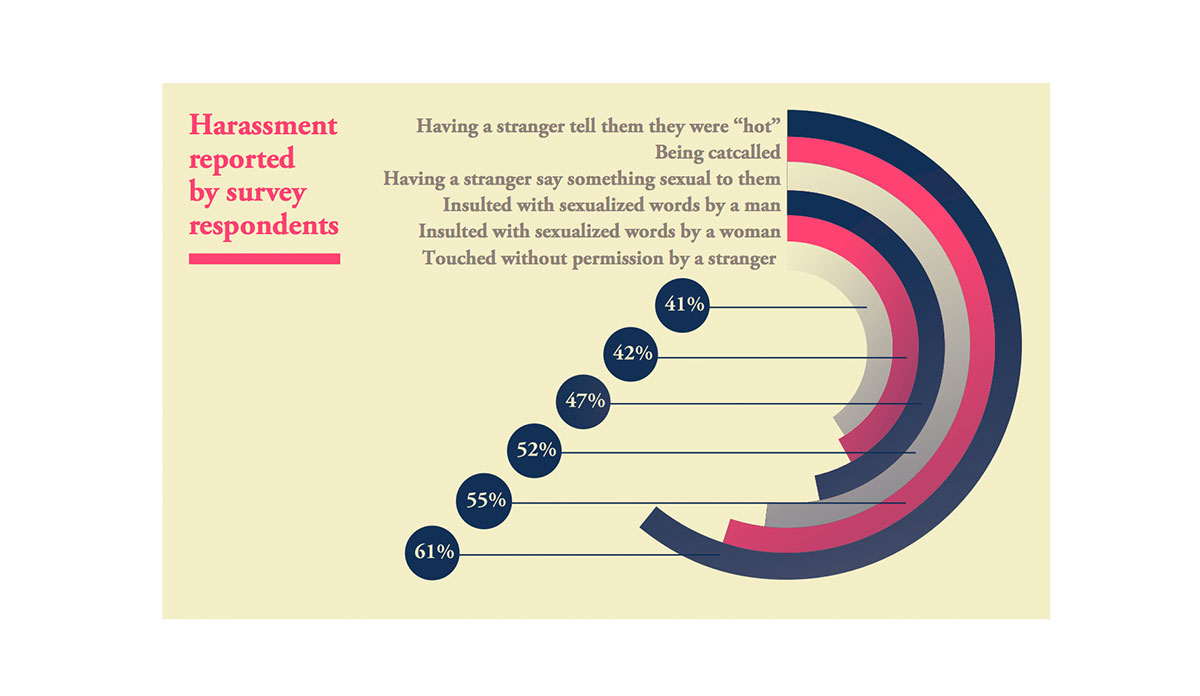In a national survey of 18- to 25-year-olds, 87% of women had experienced at least one of the forms of misogyny and sexual harassment depicted in the graphic above. “Yet 76% of respondents to this survey had never had a conversation with their parents about how to avoid sexually harassing others…or about various forms of misogyny.”
This data was reported by the Harvard Graduate School of Education’s Making Caring Common Project in May 2017. The report, titled “The Talk: How Adults Can Promote Young People’s Healthy Relationships and Prevent Misogyny and Sexual Harassment” found that adults are spending too much time worrying about the “hook-up culture” that appears to pervade adolescents’ romantic relationships, and too little time on more pressing issues. Misogyny, sexual harassment, and unhealthy expressions of “love” are more common in the lives of young people than casual hook ups.
The report also finds that young people aren’t aware of this. About 85% “prefer other options to hooking up, such as spending time with friends or having sex in a serious relationship.” An overestimation of their peers’ sexual activity, however, tends to alter their own views on sex and can make them feel ostracized or pressured to have sex before they’re ready.
The 18 to 25 years olds surveyed indicated that they want to receive guidance on healthy relationships from both parents and health or sex education classes. Instead, they often hear “disaster prevention” themes like how to prevent pregnancy and sexually transmitted infections.
The 18 to 25 years olds surveyed indicated that they want to receive guidance on healthy relationships from both parents and health or sex education classes. Instead, they often hear “disaster prevention” themes like how to prevent pregnancy and sexually transmitted infections.
As a 16-year-old high school sophomore from California told the report, “One thing that I think all girls go through at some age is the realization that their body, seemingly, is not entirely for themselves anymore…the unfortunate thing is that we all just sort of accept it as a fact of life.”
The authors suggest that misogynistic incidences over the last few decades have increased as a result of females outperforming and outnumbering males in schools and colleges, as well as a greater number of teens and young adults watching porn regularly.
The report offers guidelines for parents to talk with their teens about healthy relationships and how to avoid or prevent misogyny and sexual harassment. It starts with helping teens define matters like sexual harassment and degradation and discern the difference between love, lust, and infatuation. Using mainstream media and lessons learned from parents’ own lives can be effective means of communicating about these issues.
“We can continue to bewail, based on misconceptions, sex-crazed teenagers,” the report says. “Or we can take real steps toward preventing misogyny and helping young people develop the skills and wisdom they need to love well at many stages of their lives—and perhaps gain wisdom, heal, and mature ourselves.”
Databyte via The Talk: How Adults Can Promote Young People’s Healthy Relationships and Prevent Misogyny and Sexual Harassment. Harvard College Graduate School of Education.













